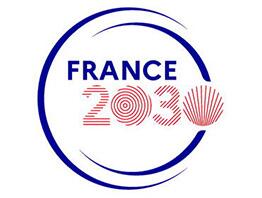
The Protection and Enhancement of Heritage – The SPHINX Project
The SPHINX Project (Sciences du Patrimoine: Héritage, Innovation, enjeuX – "Sustaining and Preserving cultural Heritage: Innovation, Networking and eXpertise") led by Sorbonne University, was selected as part of the “Research Programs in Humanities and Social Sciences” call for expressions of interest, launched by the French National Research Agency (ANR) under the France 2030 investment plan.
The SPHINX Consortium
Led by Sorbonne University and coordinated by the Heritage Observatory – OPUS, and its director Nathalie Ginoux, the SPHINX consortium is formally engaged to work on the “Preservation of Cultural Heritage.” It will do so through a project that aims to address heritage over the long term and at all scales, by creating a European center of expertise that responds to three major interdisciplinary challenges: the making of heritage, neglected or obstructed heritage, and shared heritage.
A multidisciplinary approach in service of heritage
By bringing together researchers from diverse disciplines, centered on 13 scientific programs, SPHINX provides a promising framework for the emergence of new perspectives on heritage. These programs, covering a broad range of themes, will deepen our understanding of heritage and support the development of new tools to study and promote it.
The 17 SPHINX Research Programs
-
Identity, commons, memory
-
Artistic canons – norms and evolutions
-
Constitution and preservation of scholarly heritage
-
The tourist construction of heritage
-
Matrimonies, underrepresented heritage
-
Regulated heritage
-
Augmented heritage
-
Provenance, restitution, authentication
-
Ethics and standards of sensitive heritage
-
Threatened / made-invisible heritage
-
Restoration / preservation of expertise / highlighting marginalized heritage / revitalization
-
Digital heritage
-
Shared heritage
Concrete Outcomes to Drive New Dynamics and Improve Heritage Management
Thanks to this collaborative and research-based approach, SPHINX aims to create a continuum between academics, public and private decision-makers, heritage professionals, and the general public in order to:
- Better understand the complexity of heritage and the issues surrounding it.
- Develop tools to assess and monitor the conservation status of cultural assets.
- Propose preservation strategies adapted to different types of heritage.
- Promote collaboration among the various stakeholders involved in heritage management.
Impact on society
By bringing researchers together around shared challenges and producing cutting-edge knowledge, SPHINX contributes to informing debates on the future of heritage and guiding the decisions that affect it. The results of this project are expected to enhance the protection and promotion of heritage for future generations.
SPHINX consortium members and partners
Les membres du consortium
- Muséum national d’Histoire naturelle
- Université de technologie de Compiègne
- Université Panthéon-Assas
- Université Paris 1 Panthéon-Sorbonne
- Université Paris Sciences et Lettres
- Université de Caen Normandie
- Université Paris-Saclay
- Centre National de la Recherche Scientifique
- Institut National de Recherche en Sciences et Techniques du Numérique (Inria)
- Bibliothèque Nationale de France
- Musée du Quai Branly- Jacques Chirac
- Institut National d’Histoire de l’Art
Les partenaires de SPHINX
Partenaires académiques :
4EU+, Académie du Royaume du Maroc, Casa de Velázquez, CNAM, École française d'Athènes,École française d'Extrême-Orient,École française de Rome, ENSCI - les Ateliers, Institut français d'archéologie orientale, Sorbonne Abu Dhabi (SUAD), Universidad Nacional Autónoma de México (UNAM), Université de Genève - Art Law Centre, Université de Louvain, Vilnius University, Institut de Recherche pour le Développement (IRD), Institut d'études avancées de Paris (IEA), Institut de Recherche et Coordination Acoustique/Musique (Ircam), Maison Française d’Oxford, Madrid Institute for Advanced Studies (MIAS), NYU - Silsila: Center for Material Histories, UNAM - Instituto de Investigaciones Estéticas (IIE), Agence Nationale des Parcs Nationaux du Gabon.
Partenaires institutionnels :
Art Studio, Arte, Ashmolean Museum at Oxford University , Ask Mona, Bababam, Château de Versailles, Cité de la musique, Commission nationale française pour l'Unesco, Correspondances digitales, Ecole du Louvre, European Academic Heritage Network - UNIVERSEUM, Field Museum - Chicago, Fondation des sciences du patrimoine (FSP), French Ministry of Culture, French Ministry of Europe and Foreign Affairs, GEDEON Programmes, Institut européen des itinéraires culturels, Institut Mémoires de l'édition contemporaine (IMEC), International Council of Museums Committee for University Museums and Collections (UMAC -ICOM), Kinepolis, Louvre Abu Dhabi, Lumetis, Maison Française d’Oxford, Musée de Bayeux, Musée des Arts Décoratifs, Musée du Louvre, Obvious, PCA-Stream, Perles d’Histoire, Région Normandie, Théâtre de la Concorde, TUMO (Simonian Educational Foundation).

France 2030
The project is supported by the French National Research Agency (ANR) as part of the France 2030 government investment plan deployed by the General Secretariat for Investment (SGPI).
